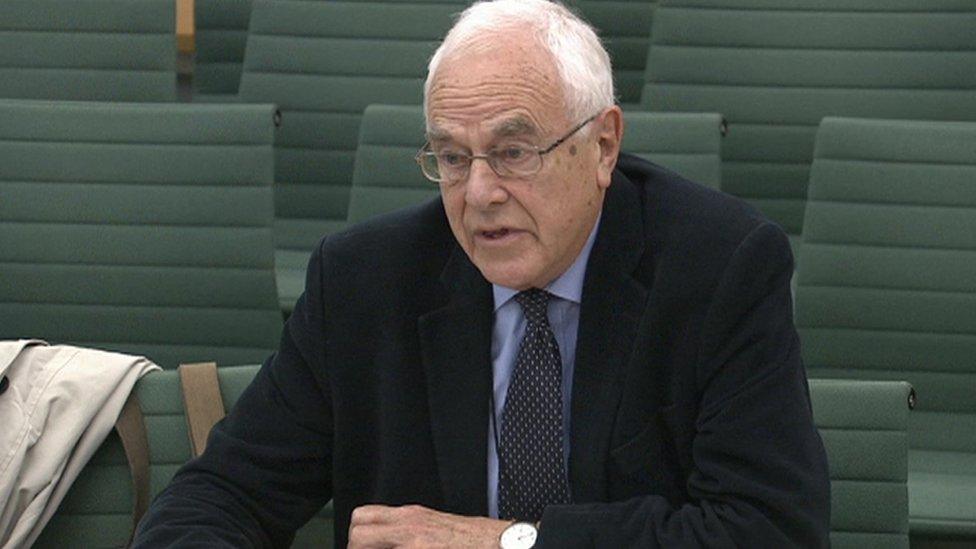EU migration: Economist questions impact of benefit curbs
- Published

Sir Stephen stressed that his was a personal opinion
Limiting EU migrant workers' rights to benefits will do little to cut inward migration, a member of the Office for Budget Responsibility has said.
Asked what impact a proposed four-year ban on in-work benefits would have, Sir Stephen Nickell told MPs "not much".
Bu the economist said the watchdog had not done any analysis to back this up.
Work and Pensions Secretary Iain Duncan Smith disagreed with this "one opinion" on what is a key goal for the UK's renegotiation of EU membership.
Mr Cameron wants the EU's other 27 members to agree to allow the UK to deny migrants in-work benefits for four years after arriving in the country - a move which he says would cut the flow of foreign job-seekers.
EU officials have said this will be "very tough" to negotiate amid warnings that it could be discriminatory and potentially unlawful.
Outside remit
Appearing before the Commons Treasury Select Committee, Sir Stephen - a member of the OBR's Budgetary Responsibility Committee - was asked about its likely impact on migration from EU countries.
The OBR, he said, had not done any detailed analysis of this as it was not yet government policy so fell outside the watchdog's remit.
But asked for his personal opinion, he replied: "Changing the benefit rules for EU migration so that they become more difficult to obtain - you are asking me what impact that is likely to have. In my opinion: not much."

Analysis by the BBC's deputy political editor James Landale
Iain Duncan Smith is resisting attempts by some in Downing Street to water down plans to curb benefits for EU migrants as part of the UK's EU reform demands.
Options being considered are understood to include imposing the benefit curbs on Britons too, so they are non-discriminatory, or reducing the proposed amount of time migrants would have to work in the UK before they could claim benefits.
But the work and pensions secretary has made clear his belief that the prime minister should stick to the plan to curb benefits for four years, emphasising repeatedly that this is a Conservative manifesto commitment.
He also said that the UK had the private support of several EU countries in this matter.

Asked if he could expand on this view, he said: "I have no idea because I have not investigated it. I am prepared to say that any changes to benefit rules are unlikely to have a huge impact on migration flows."
Sir Stephen, a former member of the Bank of England's Monetary Policy Committee, added that there was quite a lot of evidence that differences in job opportunities and pay were "a significant factor in migration flows" around the world.
Conservative MP Andrew Tyrie, who heads the committee, said he would be writing to Sir Stephen to ask him to "substantiate" his remarks and to appraise any conclusions which could be drawn on the subject.
And Work and Pensions Secretary Iain Duncan Smith said he disagreed with the economist, saying "that is just an opinion of the individual concerned".
He said he believed bearing down on in-work benefits would make a "huge difference" to the numbers coming to the UK
"If you deal with the issue of migrancy through welfare, as part of that process, that is critical to any relationship," he told BBC Radio 4's World at One.
"Taking out part of the pull factor of people coming over, who can declare themselves to be on zero earnings and getting tax credits and maybe doing cash-in-hand elsewhere, these are all problems the country faces and we need to deal with.
"What the public don't want to be doing is to pay tax to support people who decide this is a better country to be in to claim particular benefits."
- Published8 December 2015
- Published30 December 2020

- Published17 February 2016
